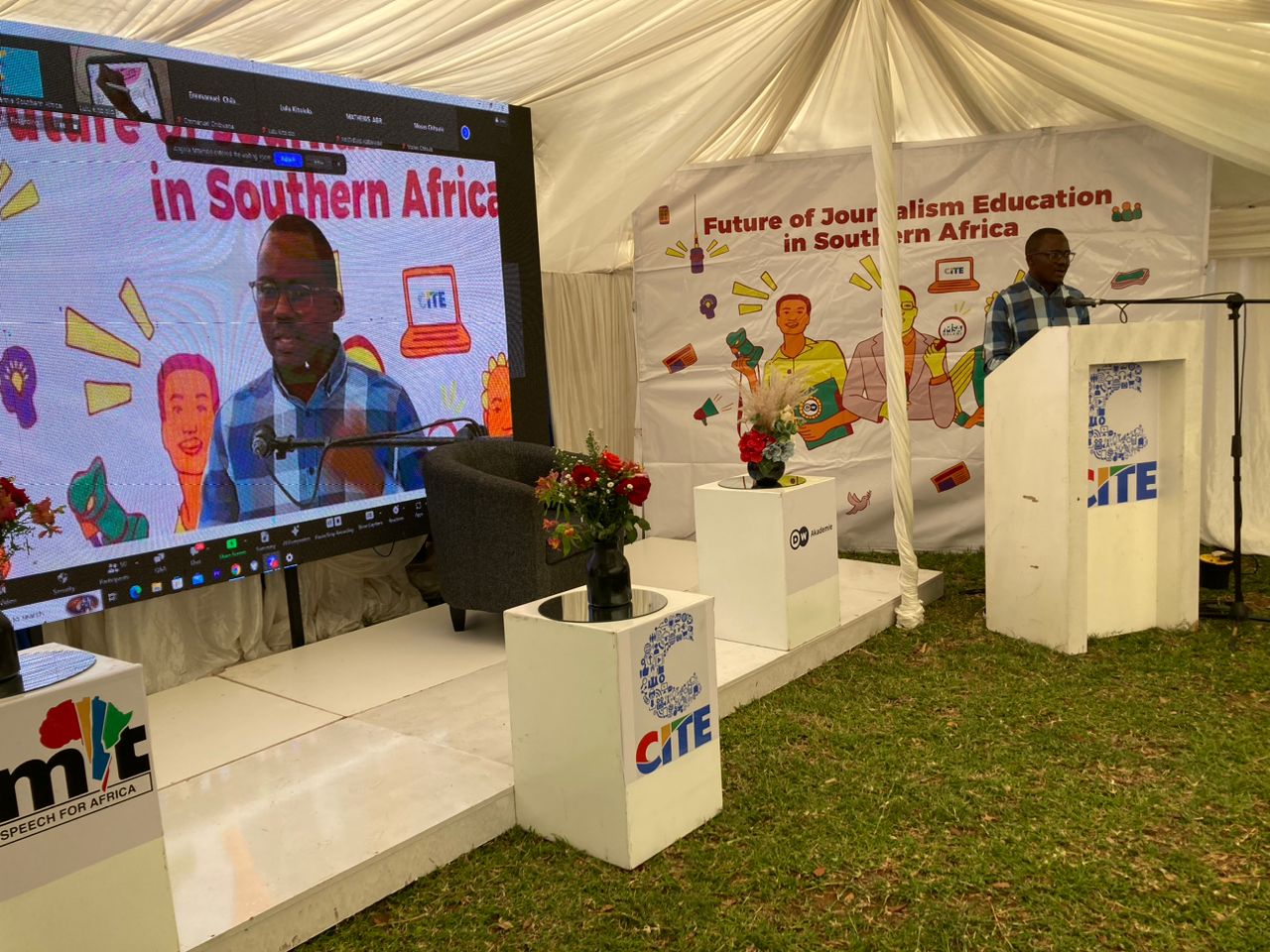Director of Bulawayo-based Center for Innovation and Technology (CITE), Zenzele Ndebele has advised media practitioners in Zimbabwe to embrace Artificial Intelligence (AI) because it exists to complement their journalism work.
AI in journalism can be used for many back-office tasks, such as recommending content, transcribing interviews, subtitling videos, analysing audience interests, preferences and engagement including boosting their all-important Search Engine Optimisation ranking.
CITE implemented AI on May 7, 2023, by introducing Alice, an AI-generated newsreader, to improve news delivery and engage audiences.
During his remarks at the three-day regional media conference on the Future of Journalism Education in Southern Africa, Ndebele stated that media owners must raise awareness about AI among journalists and media practitioners.
“AI is a tool that is controlled by a human being, and we decide on what goes, and this is why I don’t believe that AI is an immediate threat to journalists. AI will not take jobs from journalists at CITE. AI cannot go out and gather news, but AI can complement the work that we are doing,” Ndebele said.
“AI will play a big role in research gathering and interrogating big data and there is a need for media owners and media to create awareness among journalists and media practitioners on what AI is all about and its capabilities, the do’s and don’ts.”
The three-day regional media conference began on October 3 in Windhoek, Namibia, then moved to Bulawayo, Zimbabwe where it was hosted by CITE on October 4, and concludes in Lilongwe, Malawi on October 5.
The conference’s theme is “Empowering African AI” to advance the Future of Journalism Education in Southern Africa
According to the CITE director, bringing journalists on board is critical for AI to perform correctly.
“Journalists are the last people to know about things even though they write about them every day. We write about issues that we actually don’t understand because we are just quoting, so it’s important that we bring journalists on board if we want AI to work properly,” Ndebele said, noting that CITE spent US$10 ,000 this year conducting research and figuring out how to use AI.
“AI is going to be part of CITE, in 2023 we invested about US$10 000 in AI research and how to use AI and we are hoping to double that. We are hoping to spend about US$30 000 on AI in 2024 and more. It is my dream that by 2026, the CITE newsroom will be 90 percent if not 100 percent automatic and have journalists inputting to that. While we focus more on community issues and real voices of people, we will let AI do other things that can be done.”
Ndebele went on to say that employing AI was a progressive step that should be embraced, comparing the arrival of AI to the arrival of technology during the industrial revolution.
“We should know AI has limitations. It’s not going to solve all the problems that we have. It’s not going to generate money for us, but it is a tool that we can use in terms of distributing content, conducting audience research and mediating content online,” he said.
Furthermore, the CITE director stated that AI technologies are influencing how the media operates.
“The growth of social media has led to the decline of advertising because people are now advertising directly on Twitter, on google, so big tech has become an issue and as audiences and people who are in the media industry, we should be asking ourselves what this means,” he said.
“We’ve seen the rise of AI, the rise of virtual reality, and it’s not going away. It’s rising, and the issue we should be asking as media companies is what we’re doing about it, since these changes affect how the media operates. They have an effect on profitability as well,” he said.
Despite the constraints of declining advertising and newspaper circulation, the CITE director sees AI as an opportunity that requires adaptability, creativity, and creative thinking.
“We have seen the coming of AI that produces content, video, text, audio and it has brought a lot of disruptions in a big way because a lot of things are now being done using AI,” he said.


Leave a comment